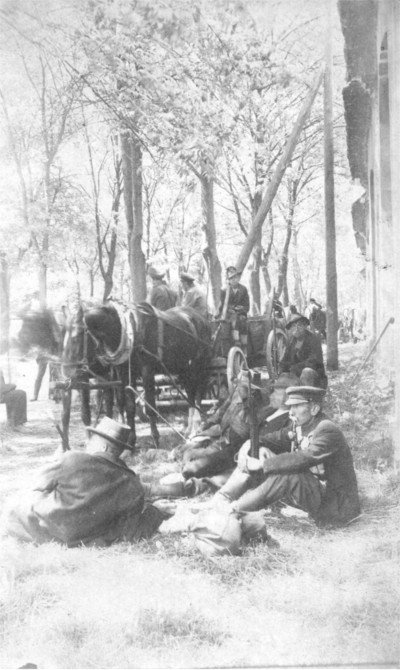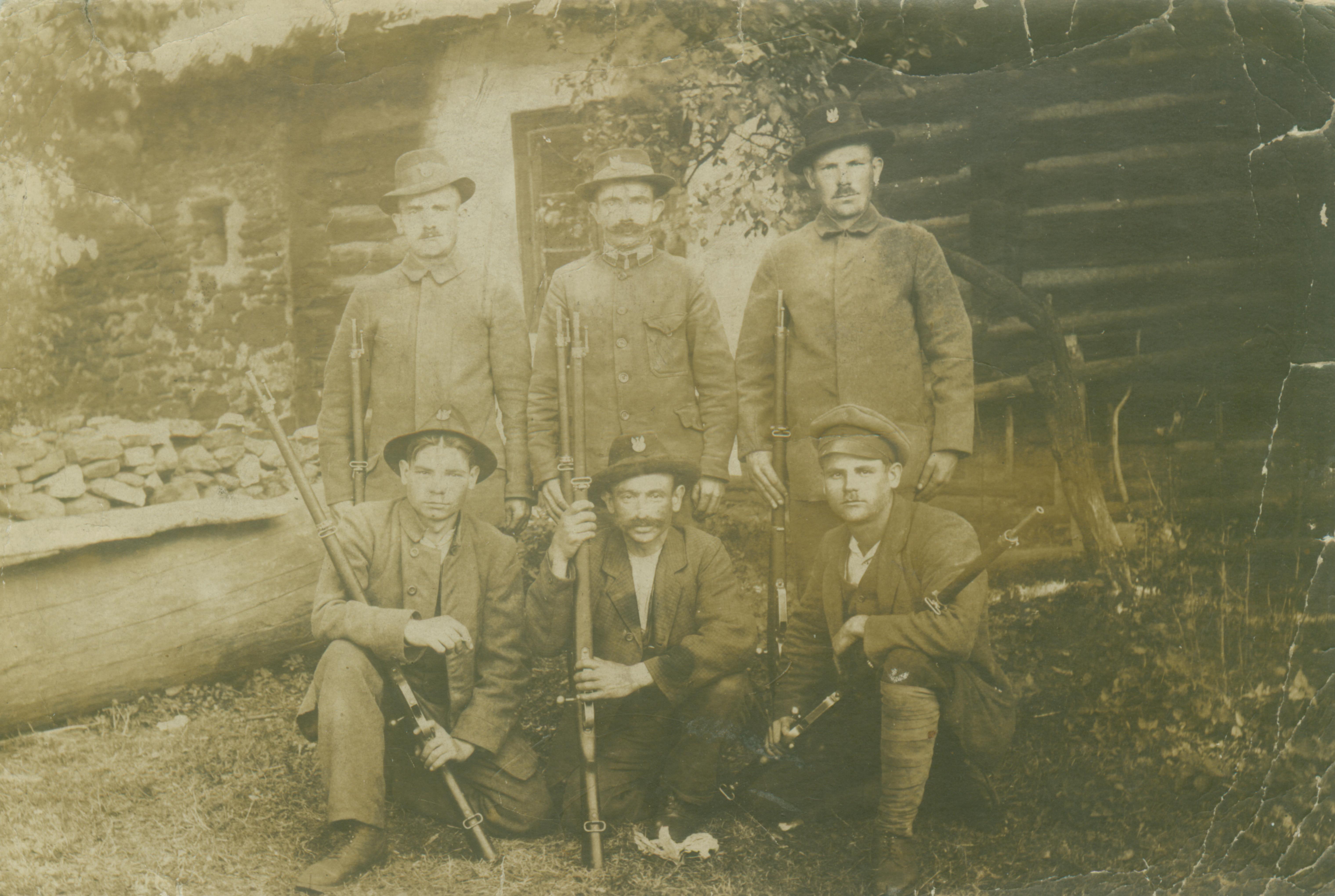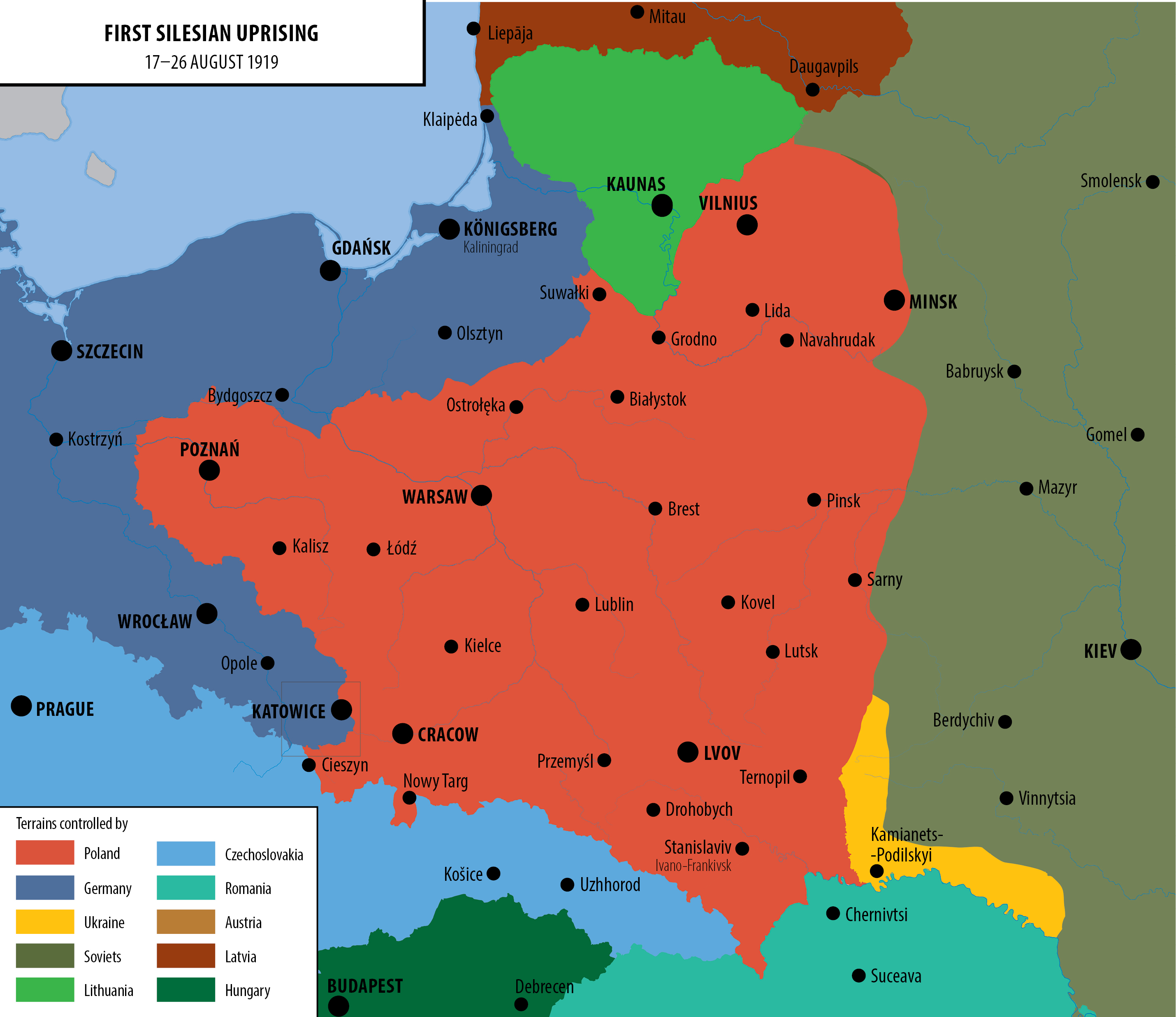
Our group of 40 men, armed with 2 rifles, about a dozen brownings, and about a dozen hand grenades which we produced ourselves, disarmed and rendered harmless the well-armed enemy. I then went with Emanuel Siwy to the apartment of German policeman Szczurek, whom we disarmed of his browning. Meanwhile, the Grenschutz from Bytom, armed with machine guns, came to the imprisoned men’s succor and we, as the weaker ones, retreated in the direction of Brzeziny and Kamień, to Poland. Then came repressions and searches for the insurgents in homes, with arm in hand. Bookstore owner Rudzki, Piotr Żymańko, and Karolik were arrested.

